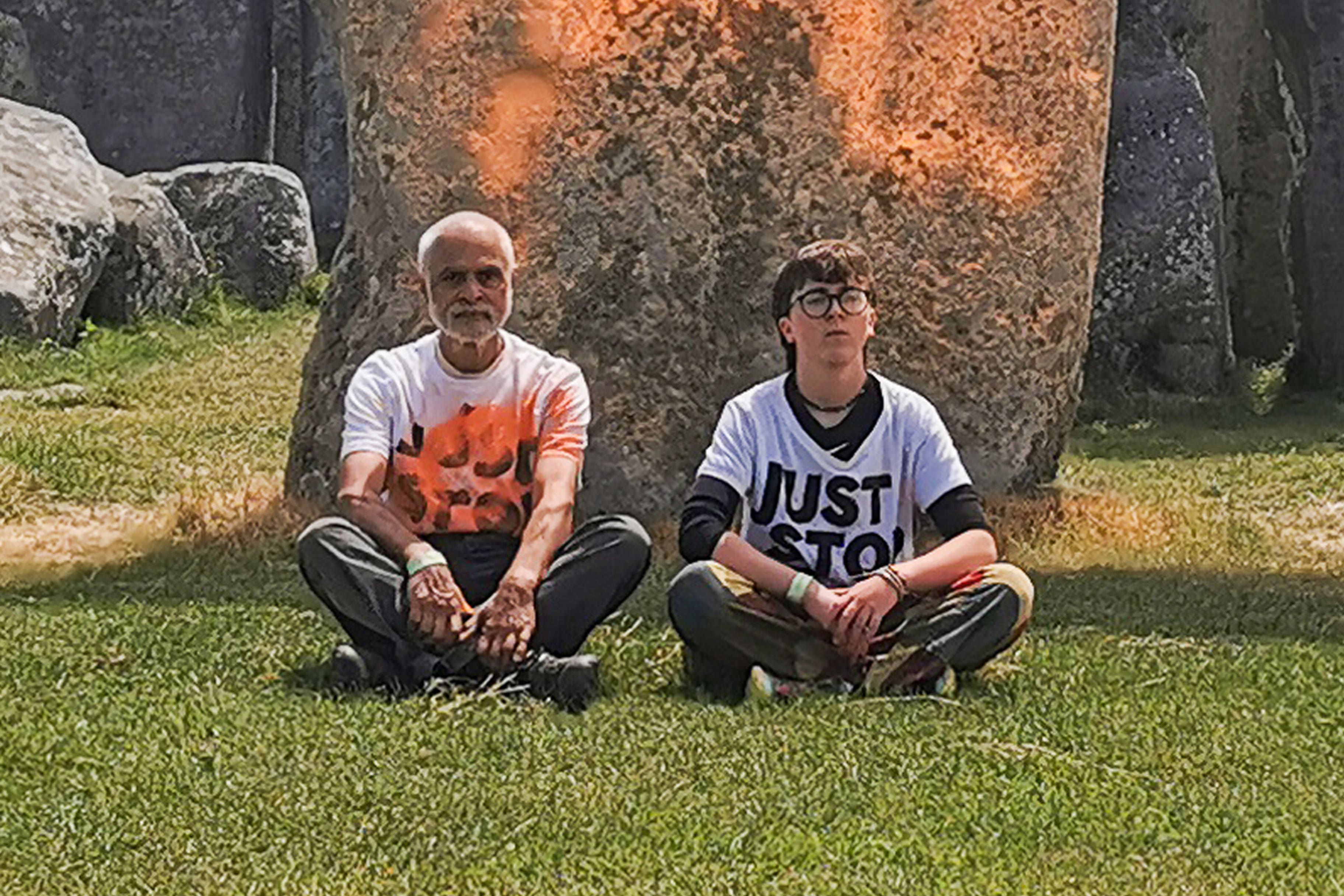Just Stop Oil activists spray orange paint over Stonehenge
Two people sprayed the ancient monument on Wednesday afternoon.

Your support helps us to tell the story
From reproductive rights to climate change to Big Tech, The Independent is on the ground when the story is developing. Whether it's investigating the financials of Elon Musk's pro-Trump PAC or producing our latest documentary, 'The A Word', which shines a light on the American women fighting for reproductive rights, we know how important it is to parse out the facts from the messaging.
At such a critical moment in US history, we need reporters on the ground. Your donation allows us to keep sending journalists to speak to both sides of the story.
The Independent is trusted by Americans across the entire political spectrum. And unlike many other quality news outlets, we choose not to lock Americans out of our reporting and analysis with paywalls. We believe quality journalism should be available to everyone, paid for by those who can afford it.
Your support makes all the difference.Two activists from Just Stop Oil have sprayed orange paint on the prehistoric Stonehenge stones.
Members of the public were heard shouting “no” and running to intervene as the campaigners, named by the group as Rajan Naidu, 73, and Niamh Lynch, 21, ran up to the stone circle on Wednesday.
Video footage posted on social media showed two people wearing white shirts with the slogan Just Stop Oil, approaching the monoliths with canisters spraying orange paint.
Several of the iconic stones – dating back to the late Neolithic period – were seen covered in orange paint before one protester sat on the grass and the other was detained by a member of the public.
The incident happened on Wednesday at about 12pm, the day before the summer solstice is celebrated at Stonehenge, which is the heart of a World Heritage site.
In a statement, Just Stop Oil said its action was to demand that the incoming UK Government should agree a plan with other governments to end the extraction and burning of oil, gas and coal by 2030.
A spokesperson said: “The UK’s government in waiting has committed to enacting Just Stop Oil’s original demand of ‘no new oil and gas’. However, we all know this is not enough.
“Continuing to burn coal, oil and gas will result in the death of millions. We have to come together to defend humanity or we risk everything.
“That’s why Just Stop Oil is demanding that our next government sign up to a legally binding treaty to phase out fossil fuels by 2030.”
The group said it used orange cornflour paint to spray onto the stones, which it claimed would “soon wash away with the rain”.
Around 8,000 people gathered at Stonehenge to mark the longest day of the year in 2023, with similar numbers expected on Thursday.
The solstice will be celebrate from 7pm on Thursday until 8am on Friday.
In quotes provided by Just Stop Oil, Miss Lynch, said to be a student from Oxford, said the continued burning of oil, coal and gas was leading to “death and suffering”.
“It’s time for us to think about what our civilization will leave behind – what is our legacy?” she said.
“Standing inert for generations works well for stones – not climate policy.”
Just Stop Oil said Rajan Naidu, 73, from Birmingham, added: “Either we end the fossil fuel era, or the fossil fuel era will end us.
“Just as fifty years ago, when the world used international treaties to defuse the threats posed by nuclear weapons, today the world needs a Fossil Fuel Non-Proliferation Treaty to phase out fossil fuels and to support dependent economies, workers and communities to move away from oil, gas and coal.”
English Heritage describes Stonehenge as perhaps the world’s most famous prehistoric monument.
It was built in several stages, with the first an early henge monument erected about 5,000 years ago.
The stone circle was erected in the late Neolithic period, about 2,500 BC. Burial mounds were built nearby in the early Bronze Age.
Stonehenge, together with Avebury, forms the heart of a World Heritage Site.